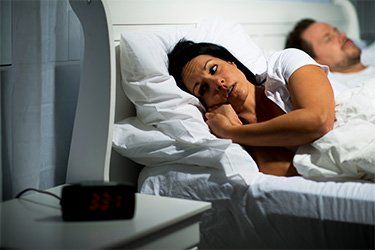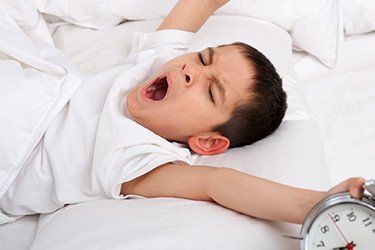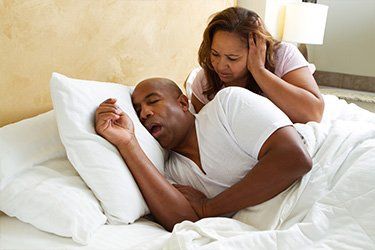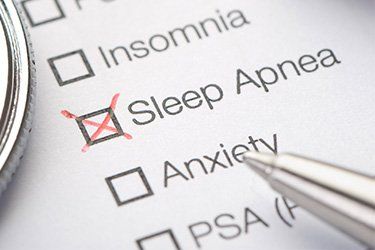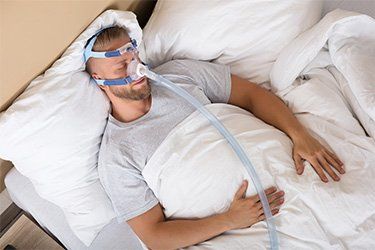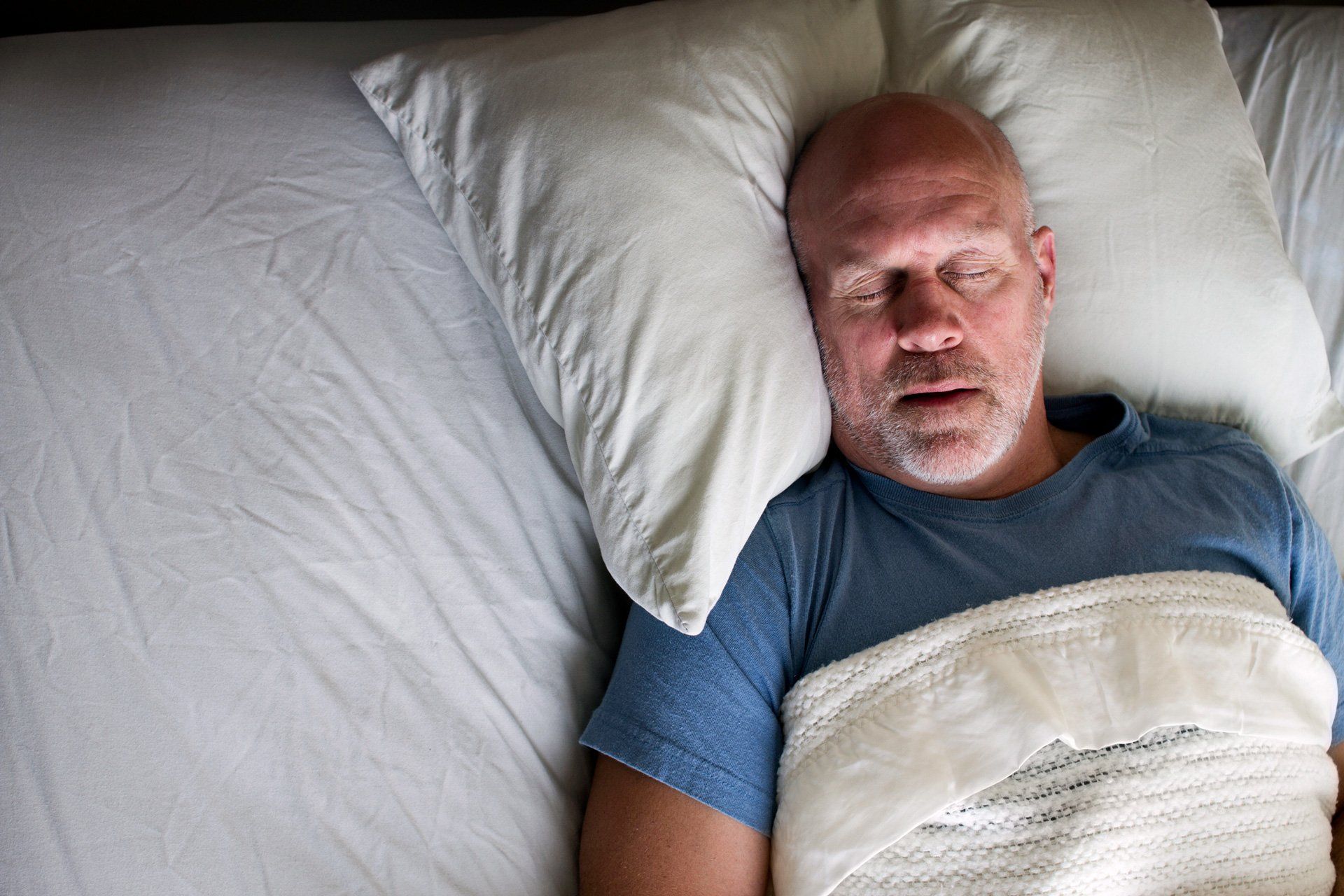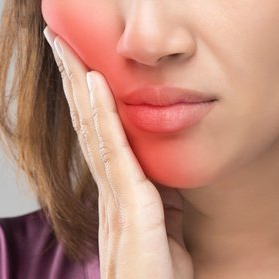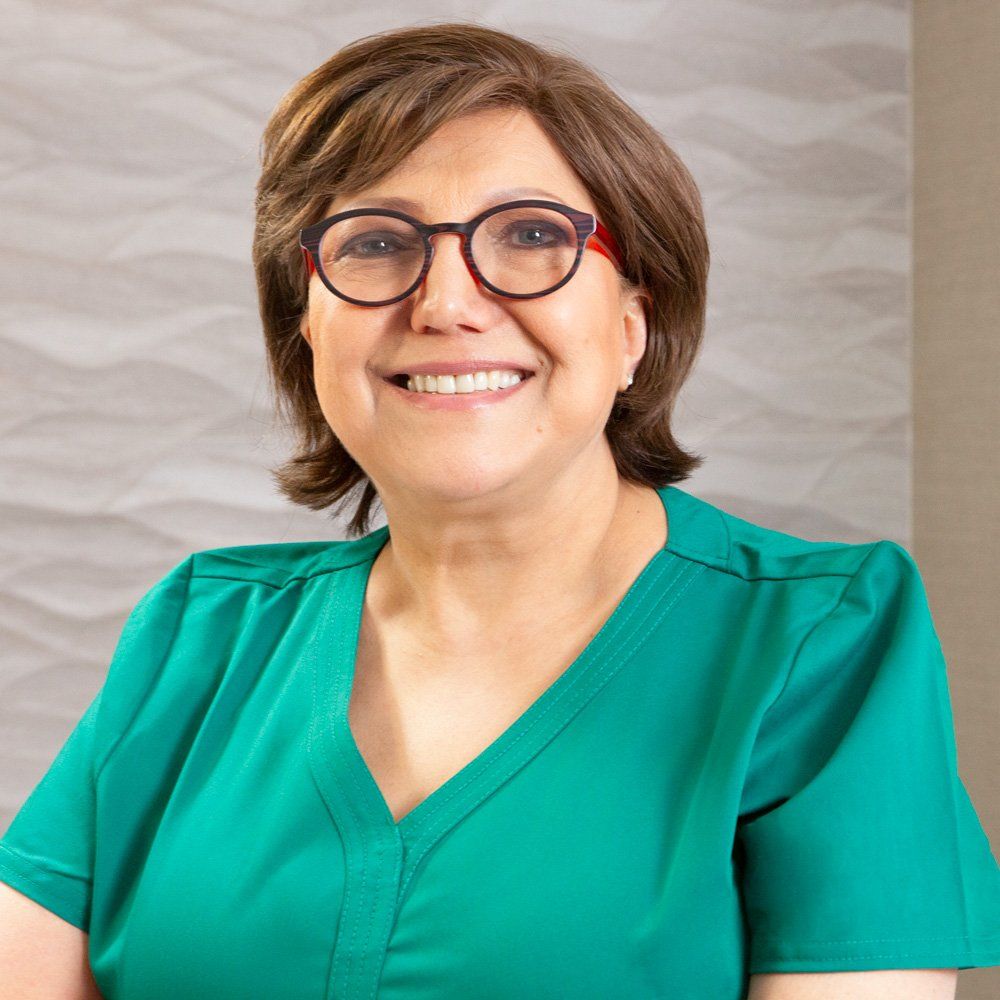Diabetes and Sleep Apnea
The close connection between diabetes and sleep apnea is well known, but some diabetic patients are never questioned about their sleep, snoring or daytime sleepiness. Therefore an individual patient’s struggle with both health problems could be overlooked. This is despite the fact that it is well known that a sleep-disordered breathing condition like apnea increases a person’s blood sugar and increase your risk of developing diabetes. If you suspect you might have sleep apnea, call us at (301) 818-2653 to schedule a consultation with Dr. Maryam Seifi for treatment.
What is Diabetes?
Diabetes is a chronic medical condition that occurs when your body has trouble regulating the amount of glucose (a type of sugar) in your blood. When you eat food, your body breaks down carbohydrates into glucose. Next, your body produces insulin, a special type of hormone which helps your body use that glucose as a source of energy.
When you have diabetes, your body either does not produce enough insulin naturally or it doesn’t use the insulin properly. This can cause your blood sugar levels to get too high. If left untreated, this can lead to:
- Kidney damage or failure
- Increased risk of heart attack or stroke
- Increased risk of heart disease
- Nerve damage
How Common Is Diabetes?
According to the Centers for Disease Control and Prevention, diabetes affects
about 37.3 million adults in the United States. An additional 96 million adults are estimated to have
prediabetes, which means they have abnormally high blood sugar levels that are dangerous but have not yet become type 2 diabetes. A simple blood sugar test from your primary care physician can tell you whether you have prediabetes.
What Is Obstructive Sleep Apnea?
When you have obstructive sleep apnea, you stop breathing while you’re asleep. This is caused by a blockage in your airway: either your tongue gets in the way when you lie down, or your throat muscles collapse in on your airway because they are too weak. When this happens, your body slowly starts to suffocate until your brain senses the problem and tells your body to wake up. These moments of suffocation can wreak havoc on your health.
Untreated sleep apnea can lead to unwanted health complications like:
- High blood pressure
- Cardiovascular disease
- Heart attack or stroke
- Liver problems
- Increased blood sugar
- Increased cholesterol
Risks of Untreated Obstructive Sleep Apnea and Diabetes
Untreated sleep disorders like obstructive sleep apnea not only harm your sleep quality, but they also harm your overall health. This is especially true if you have both sleep apnea and diabetes. Obstructive sleep apnea severity can be low or high; but even a mild case can cause problems in diabetic patients. Without treatment, you could develop insulin resistance and impaired glucose tolerance, which can lead to higher blood sugar levels and exacerbate your diabetes symptoms.
Can Sleep Apnea Cause Diabetes?
Sleep apnea may not cause diabetes, but it can certainly increase your chances of developing it. According to the American Diabetes Association, about
1 in 4 adults with type 2 diabetes also have obstructive sleep apnea. However,
other studies have found that the percentage of people with both sleep apnea and diabetes is much higher at around 50%. Either way, it's clear that there is a strong link between the two conditions. This is why it's important to take sleep apnea seriously and seek treatment if you suspect you have it. Not only can it improve your quality of life, but it may also help to lower your risk of developing type 2 diabetes.
Obstructive Sleep Apnea Is the Most Common Type of Sleep Apnea
Obstructive sleep apnea (OSA) is the most common type of apnea affecting an estimated
2-9% of adults in the United States alone. While that number may sound small, consider that the population of adults in America is
about 258 million. This makes the estimated number of adults with OSA between 5 million and 23 million people.
You Could Have Obstructive Sleep Apnea and Not Know It
Do you frequently feel exhausted during the day even though you got plenty of sleep the night before? Do you get headaches or sore throats in the mornings? Are you having trouble focusing, unexplained mood changes, or sudden short temper? These are common experiences, and we usually attribute these problems to “waking up on the wrong side of the bed” or simply not sleeping well the night before. But did you know that all of these problems are symptoms of sleep apnea?
Most people who have mild to moderate sleep apnea don’t even realize they have it because the most obvious symptoms, such as feeling tired, are explained by a poor night’s sleep, a lack of coffee, stress, or other wrong reasons why your body doesn’t feel right. If you’ve noticed any of the symptoms mentioned here, you should schedule a consultation with Dr. Maryam Seifi to discuss sleep apnea.
Symptoms of Sleep Apnea
If you are experiencing any of the following symptoms, you should talk to your primary care physician about getting tested for sleep apnea. You can also schedule a consultation with Dr. Maryam Seifi, who can advise you on whether or not you should get a sleep study done for an official sleep apnea diagnosis. The symptoms to look out for include:
- Snoring
- Waking up gasping or choking
- Unexplained mood swings
- Unusual short temper
- Morning headaches
- Difficulty concentrating
- Memory loss
- Daytime fatigue
- Morning sore throat
- Depression
- Anxiety
- Insomnia
- Low sex drive
- High blood pressure
- Increased cholesterol
- Increased blood sugar
Does Diabetes Cause Sleep Apnea?
No, diabetes itself does not cause sleep apnea. However, given that the two conditions often go hand in hand, it’s possible some aspects of diabetes increase your risk of developing obstructive sleep apnea. There are other known risk factors that can lead to obstructive sleep apnea, including:
- Weight – Those who are overweight or obese are more likely to develop obstructive sleep apnea due to excess weight on their throat and lungs when they lie down to sleep. Excess weight is also associated with higher risk of developing diabetes.
- Age – Older adults tend to get diagnosed with sleep apnea more than younger adults, which may be due to weakening muscles as you age. Similarly, type 2 diabetes is most commonly diagnosed in those over 45 years old.
- Smoking – When you inhale smoke, it irritates your throat and can lead to inflammation (swelling), which can then increase your risk of developing sleep apnea.
- Drinking – Drinking alcohol to excess, especially before bed, increases your risk of developing sleep apnea because it acts as a muscle relaxer, and that includes the muscles in your throat.
- Sedatives – Using drugs that relax or sedate your body can increase your risk of obstructive sleep apnea because again, they can relax the muscles in your throat and cause you to suffocate.
- Gender – Men are about twice as likely to develop sleep apnea compared to women.
- Genetics –
Some people are born with genetically smaller airways which are easier to block. Others have smaller jaws or a family history of sleep apnea. There are several genetic factors that can increase your risk of developing sleep apnea. Likewise, your risk of developing either type 1 or type 2 diabetes increases if you have an immediate family member with this condition.
What if I have diabetes and I do suffer from obstructive sleep apnea OSA? What treatments are available to me?
If you have diabetes and discover that you also have obstructive sleep apnea (OSA), there are several different sleep apnea treatments available to relieve your symptoms. Some doctors will prescribe a continuous positive airway pressure (CPAP) device, an appliance worn over the face that forces air into the throat to keep the airway open. Others will cut the lower jawbone and reposition it, and still others will recommend a general oral appliance to advance the lower jaw forward and keep the airway open during sleep.
A far more effective method of treatment, even for severe sleep apnea, is to encourage the body to correct the bone structure around the airway. This handles the cause of your obstructive sleep apnea so you can get a good night’s rest, which can improve your diabetes-related symptoms like glucose intolerance and insulin resistance. That is the result of treatment with the Vivos Biomimetic Oral Appliance .
If you have not been diagnosed with sleep apnea but have diabetes and suspect you may have sleep-disordered breathing, we can help.
Treat Sleep Apnea the Vivos Appliance
Learn how this unique appliance can help you eliminate your apnea and control your diabetes. Contact us to attend our next educational seminar or ask about a personal consultation with Dr. Maryam Seifi. Call (301) 818-2653 , email info@breathoflifeteam.com to register.

